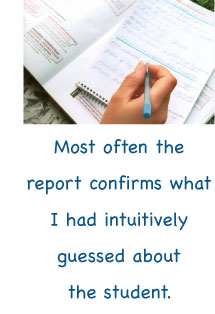Kids Can’t Wait: Strategies to Support Struggling Readers
By Kyle Redford – YCDC Education Editor


Strategies to Support Struggling Readers Which Don’t Require a Ph.D. in Neuropsychology
I have a confession to make. It involves a basic failure on my behalf. What’s worse, my failure impacted students whom I care deeply about: students with dyslexia and other language-based learning challenges. It involved waiting for test results before putting accommodations in place for students who were struggling in my class. Of course I didn’t fail them intentionally, and by about the third time I got an evaluation back that pretty much said what I imagined it would, I started putting help in place for the student right away. The discovery of my own blind spot led me to wonder if other teachers were accidentally failing their students in similar ways.
For many years, this is what I did: I would identify a student who was having problems, make some basic observations about what was particularly difficult for him, and then request further information about the student in the form of screening, special tests, and/or a learning evaluation. I would then wait for a report before taking further action. I am often haunted by memories of a particular former eighth-grade history student whose contributions to our discussions put him at the top of the class, but his written answers on tests and essays were always weak and minimalist and put him only in the high C range. At the time, I thought it was sufficient to label this descrepancy and recommend that he get a formal evaluation. I suspected a test would reveal that he was dyslexic. His English teacher concurred. Unfortunately, his father would have nothing to do with outside testing, so my brilliant student received low Bs in my class and never got the help he needed to express what he knew.
But really, what was I waiting for? If asked, I would have responded that I needed more specific information about the student before I could know best how to support him. To many readers, I am sure that response sounds legitimate and reasonable. However, my confession is aimed at fellow teachers who will understand why my delay was unnecessary. I know that I am not alone when I admit that I can usually make general assumptions about what a learning evaluation is going to say before the results are in. Most often the report confirms what I had intuitively guessed about the student. As personally validating and satisfying as that confirmation often is, it should not be a prerequisite to providing timely critical accommodations to my students.
Immediately employing accommodations makes sense for many reasons. First, evaluations take time to schedule and complete. Why waste time waiting to have suspicions confirmed before helping a student? Secondly, there are those untidy problems of cost and access. Testing and evaluations are expensive and for many an unobtainable luxury. For a variety of reasons, public schools can be stingy with these resources, and many independent schools wrongly assume that parents can afford this expense on top of the cost of the school’s tuition. Consequently, many students who need the help that an evaluation can provide are denied it.
I need to be clear about something—I remain an enthusiastic proponent of testing and evaluations. Teachers are greatly assisted by the critical information that they yield. Outside testing provided by learning specialists offers a unique opportunity to isolate many classroom variables and specifically reveal and identify students’ academic strengths and weaknesses. Additionally, testing helps assess how extreme students’ gaps are, and what level of response is necessary. That information is a real gift to teachers, parents, and most importantly, students, and it is a gift that keeps on giving because tests allow future teachers to understand the student’s profile. Lastly, evaluations are required for students to qualify for accommodations on high-stakes tests such as SATs, ACTs and state exams. All indentified students should be provided access to them.
For A Student Struggling with Understanding the Classroom Reading Assignments
- Suggest listening to audiobooks or identify a willing adult to read the assigned book to the student. Recommend that students read along with the audiobook version or to follow the words alongside the reader. The more often a struggling reader is exposed to the way they words look, the better. Exposure to the page helps students learn the architecture of sentences. This also helps with spelling and conventions.
- Suggest use of assistive technologies currently available that read material aloud to the student. The Kindle, the iPad, or Google’s Nexus tablet, would be examples of this kind of technology, but there are many similar devices being introduced into the market all the time. Click here to read a comparison of these tablets.
- If the book/content has been made into a film or covered in a film, suggest that the student watch it to help give a context to the story or content.
- Offer extra time to finish reading assignments. Dyslexic and struggling readers need more time to read assigned material.
- Provide class syllabuses in advance. Allow the student to read assignments ahead over the school breaks and the summer. This can help the student get a head start so that when the school year takes on its full momentum she is prepared and has had an opportunity to work ahead to absorb the increased volume of work.
- Recommend reading books with larger fonts. Hardback versions from the library are visually easier and E-readers offers the ability to adjust the font size as well.
- Recommend books that may be shorter or less dense but equally rich in ideas and story for independent reading time. (Click here for a kid-tested reading list.) It is important to recommend the book with enthusiasm, the same enthusiasm typically reserved for more sophisticated titles. Read well-written, easier books yourself, out loud to the class, and recommend them to all students so the struggling students can read them without shame. The objective is to get struggling readers to read AND to like it. (For more on creating a classroom culture for struggling readers, click here.)
- Recommend graphic novels. (Click here for a listing of kid-approved ones.) Graphic novels provide struggling readers with a way of strengthening their vocabularies, build their reading confidence, and foster their appreciation of story. Graphic novels can also help support a reader’s understanding of everything from Greek Mythology to Shakespheare.Dictating ideas to an adult can help a student get started with their writing by generating an idea bank that they can draw from. (They also won’t get caught up worrying about how to spell those words)
Continue reading: http://www.dyslexia.yale.edu/resources/educators/instruction/kids-cant-wait-strategies-to-support-struggling-readers/







